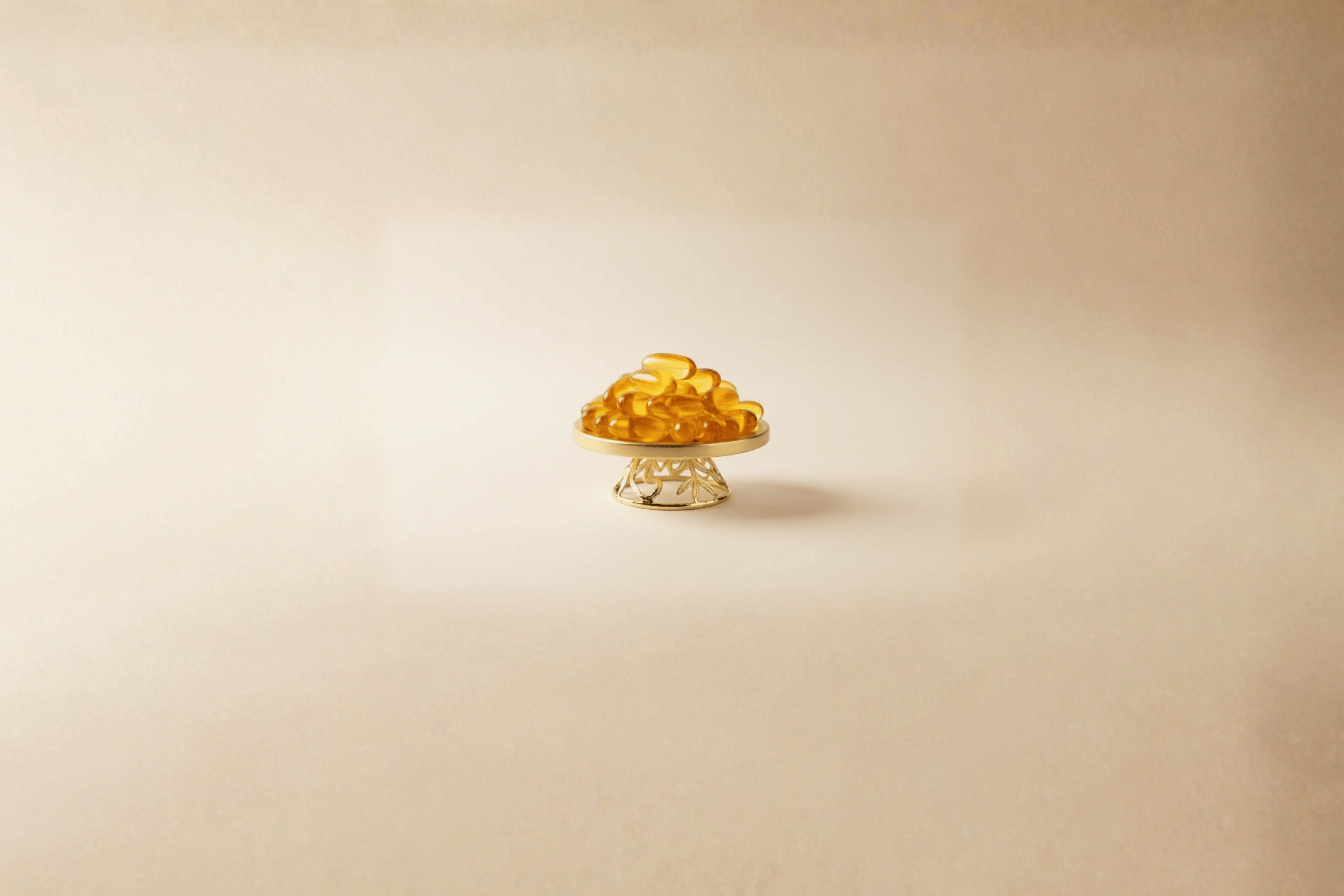Article: Dr. Andelle’s Science-Backed Tip: Omega-3s for Depression

Dr. Andelle’s Science-Backed Tip: Omega-3s for Depression
Let’s talk about something that’s in your control and backed by research:
your daily dietary dose of omega-3 fatty acid aka...your fish oil supplement.
When my clients are feeling off—whether it's low mood, brain fog, or that general "meh" feeling—we always start with the basics: rest, movement, connection, nutrition... and overall life rhythm. Ultimately, engaging small, consistent efforts that support your mind and body healing from the inside out.
For those navigating deeper valleys—like depression, withdrawal from relationships, low motivation, overwhelm, or persistent sadness—besides therapy, I gently introduce a powerful mood support ally: a high‑quality omega‑3 supplement. Not because it's trendy or the latest thing going viral. Because it’s science-backed.
Omega-3s are essential fats your body can’t make on its own, yet they’re crucial for your brain, heart, joints—and yes, even your mood. [NIH]
Omega-3 fatty acids are naturally found in fatty fish like salmon, mackerel, and sardines, which is why diets rich in seafood are often linked to better heart and brain health.
But many simply don’t eat fish. Then, of those that do, most don’t eat enough fatty fish weekly to get the recommended amounts of healthy fish oil. Think high-quality salmon or mackerel for dinner 2-4x a week. And even if you do, life gets busy, and it can become hard to maintain consistently. That’s where taking fish oil, for high-quality omega-3s, come in.
I personally recommend choosing one of high quality that clearly lists how much EPA and DHA you're getting per serving... the higher, the better.
More and more evidence-based, research studies show that omega-3 fatty acid—especially EPA and DHA—can actually help reduce symptoms of depression and support overall brain health. [Sublette et al., 2011]
👉🏽 Here’s what we know from the research:
- Dosage between 200–2200mg of EPA/DHA per day have been linked to improvements in mood. [Healthline]
-
In particular, EPA-heavy formulas (meaning more EPA than DHA) seem to offer the strongest benefits for mood decline like depression. [Martins, 2009]
- *In other words, higher intake of EPA is consistently linked with reduced depression symptoms. [Sublette et al., 2011]
- The key is quality and consistency — not all fish oil is created equal.
- Multiple trials also found both EPA and DHA supplementation were associated with overall improvements in mood and lower rates of depressive episodes. [Appleton et al., 2010]
AWEssentials own Omega 3 formula was chosen because I got tired of weeding through low-quality options for family, friends, and clients. AWE's Omega 3 is clean, effective, super high-quality EPA and DHA, and ideal to support mood and mental wellness. And has a lot of other great benefits for the body and mind too, including heart health, fighting cardiovascular disease and reducing the risk of stroke.
Check out more on AWEssentials Omega 3. I've even included why and exactly How I Use It, so you can take a peek into my own real-life routine.
Of course, no supplement replaces good omega-3 fatty acid-rich nutrition, rest, movement, connection, or therapy—but for many of us, omega-3s are one of those small, science-backed steps that make a real difference for feeling in good mood over long lengths of time.
And it is something simple you can start today.
Beyond supporting mood, research also suggests that omega-3 fatty acids may play a role in lowering inflammation throughout the body. Inflammation is often called the “silent stress” on your system, linked to everything from joint stiffness to skin irritation. By adding a consistent omega-3 supplement, you’re not just caring for your mind—you’re also giving your body an inside-out defense against chronic stressors. [Dyall, 2015]
Omega-3s can also be a game-changer for those working on long-term wellness goals. Whether you’re building a routine around better sleep, reducing anxiety, or simply wanting more focus during the day, consistent supplementation can offer the steady support your brain and nervous system crave. I like to think of it as a daily act of self-care—just like journaling, stretching, or therapy. If you’re curious about how I integrate supplements into my own lifestyle, check out my Top 3 Mood + Mental Health Tips.
_________
Sources
- Appleton KM, et al. (2010). Increased intakes of EPA and DHA are associated with reduced depression in adults. https://pubmed.ncbi.nlm.nih.gov/20130098/
- Dyall SC. (2015). Long-chain omega-3 fatty acids and the brain: a review of the independent and shared effects of EPA, DPA and DHA. Frontiers in Aging Neuroscience, 7:52. doi:10.3389/fnagi.2015.00052. PMID: 25954194; PMCID: PMC4404917. https://www.ncbi.nlm.nih.gov/pmc/articles/PMC4404917/
- Healthline – How Much Omega-3 Should You Take per Day? (Reviewed by Amy Richter, RD). https://www.healthline.com/nutrition/how-much-omega-3
- Martins JG. (2009). EPA but not DHA appears to be responsible for the efficacy of omega-3s in depression. https://pubmed.ncbi.nlm.nih.gov/19335883/
- Mocking RJT, et al. (2016). Meta-analysis on omega-3 supplementation for major depressive disorder. https://pubmed.ncbi.nlm.nih.gov/26807246/
- National Institutes of Health (NIH) – Omega-3 Fatty Acids Fact Sheet for Health Professionals. https://ods.od.nih.gov/factsheets/Omega3FattyAcids-HealthProfessional/
- Sublette ME, et al. (2011). Meta-analysis of the effects of EPA in clinical depression. https://pubmed.ncbi.nlm.nih.gov/21283507/



